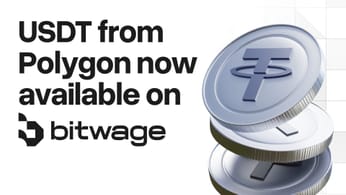
Top Sourcing Strategies to Enhance Your Talent Acquisition Efforts
Discover effective strategies for hiring international contractors and overcoming challenges such as legal compliance, cultural barriers, and time zone differences.
Table of Contents
Businesses across the globe are looking beyond their national borders and tapping into global talent pools. Sourcing international contractors has become a crucial strategy for businesses looking to grow. This article explores strategies, challenges, and the opportunities that come with sourcing international contractors.
Sourcing Strategies: Benefits of Hiring International Contractors
Before we begin, let's first recognize the advantages of sourcing international contractors:
- Cost-effective
- Scale operations
- Productivity across time zones
- Cultural diversity and perspective
- Access to a diverse talent pool
The global market for freelance platforms is projected to reach over $14 billion by 2030, which leaves us wondering why more businesses are not leveraging international contractors for business growth opportunities. A well-defined recruitment strategy can help businesses leverage international contractors effectively, aligning their organizational needs with the right talent to drive growth.
Introduction to International Hiring
International hiring has become a vital component of a successful talent acquisition strategy. Collaboration with the hiring manager ensures that the recruitment process aligns with the organization's goals and needs. By recruiting and employing individuals from other countries, organizations can tap into a global talent pool, bringing in new skills, perspectives, and experiences that drive business growth and success. This approach allows hiring managers to fill skills gaps, improve diversity and inclusion, and enhance their employer brand. Embracing international hiring not only helps organizations stay competitive but also fosters innovation and creativity by incorporating diverse viewpoints and expertise.
Definition and Advantages
International hiring refers to the process of recruiting and employing individuals from other countries to work for an organization. This strategy offers numerous advantages, making it an essential part of a successful talent acquisition strategy. By accessing a global talent pool, organizations can find the right talent with the specific skills and expertise needed to drive their business forward. Additionally, international hiring helps improve diversity and inclusion within the workforce, which can lead to better decision-making and problem-solving. A strong employer brand that embraces international hiring can also attract top talent from around the world, enhancing the organization’s reputation and competitiveness.
Introduction to Candidate Sourcing
Candidate sourcing is a crucial component of a successful talent acquisition strategy, enabling organizations to identify, attract, and engage top talent. Unlike traditional recruitment methods that often rely on passive job postings, candidate sourcing involves a proactive approach to finding qualified candidates. This means actively searching for potential candidates through various channels such as job boards, social media, and employee referrals.
By leveraging these diverse sourcing channels, organizations can build a robust talent pipeline, ensuring they have access to the right talent when needed. Effective candidate sourcing requires a deep understanding of the organization’s hiring needs and the ability to craft compelling job descriptions and employer branding that resonate with potential candidates. This proactive approach not only reduces time-to-hire but also enhances the overall quality of hires, making it an indispensable part of any talent acquisition strategy.
Challenges of Hiring International Contractors
Hiring globally has many benefits, but these benefits come with their own set of challenges. Actively seeking top talent can help overcome the challenges of hiring internationally by ensuring a diverse and efficient recruitment process. It's important to take these challenges into account when looking to grow your business and scale.
Legal and Compliance in the Recruitment Process
It is crucial to ensure that your hiring practices align with laws and regulations to avoid fines, legal complications, or compliance issues. Tax, compliance, and labor laws differ across countries and can vary. It's of dire importance that you are up to date and avoid any unwanted fines. Before looking to build long-term relationships with potential candidates, make sure you are up to date.
Payment and Currency
Making payments across borders involves dealing with various currencies, exchange rates, and international bank transfers that make handling cross-border payments tedious. Each country has its local currency, which can be stressful since you have to take into account exchange rates and international transfer fees, which can be hefty.
Luckily, nowadays we have options like Bitwage, which allows you to pay your international contractors in cryptocurrency, stablecoins (Tokens pegged 1:1 with fiat currencies like USD or EUR), and even local currencies. This makes paying your international contractors easy and removes many of the monetary constraints that come with traditional banking.
Culture and Language Barriers
As with anything else in the world, good communication is key. When looking to create a long-term relationship with potential candidates, make sure that the cultural differences or language barriers don't cause misunderstandings or impact your project in a negative way.
Time Zone
Managing teams across borders requires careful planning and coordination. It's great to always have someone available round-the-clock, but it does require that the company culture revolves around flexible communication strategies and asynchronous meetings.
Effective Sourcing Strategies for Qualified Candidates and International Contractors
Now that we have looked at some of the challenges of hiring international contractors, let’s look at some strategies worth implementing for an effective talent acquisition strategy.
Effective talent sourcing is essential in recruitment, as it helps build a strong candidate pipeline and improves hiring outcomes. Combining candidate sourcing and recruiting can create an efficient hiring process by proactively identifying and engaging potential candidates for current and future job openings.
Online Platforms and Marketplaces
There are several specialized platforms hiring managers use for talent acquisition. Leverage these platforms for effective talent acquisition. These platforms can also be used to engage candidates throughout the hiring process. They often come with ways to get to know more about the person you are hiring while showcasing people's work, and often have built-in tools for communication. These platforms also usually come with payment gateways for paying your workers, but do take into account that the fees and commissions the platforms take can be hefty.
Candidate Sourcing Process
The candidate sourcing process typically involves several key steps, starting with identifying hiring needs and developing a comprehensive sourcing strategy. Hiring managers and talent acquisition teams must collaborate closely to define the specific requirements for each role, including the necessary skills, qualifications, and experience.
Once these requirements are established, the next step is to determine the most effective sourcing channels to reach the desired candidate pool. This could include niche job boards, social media platforms, or career fairs, depending on the nature of the role and the target audience. Utilizing an applicant tracking system (ATS) can streamline the recruitment process by automating tasks such as resume screening and candidate communication.
Additionally, leveraging data analytics can provide valuable insights into the effectiveness of different sourcing channels, enabling organizations to make more informed hiring decisions. By following a structured candidate sourcing process, organizations can efficiently identify and engage potential candidates, ultimately improving their talent acquisition outcomes.
Engaging Candidates
Engaging candidates is a critical aspect of the candidate sourcing process, as it enables organizations to build relationships with potential candidates and showcase their employer brand. This engagement can be achieved through various means, such as social media, email marketing, and employee referrals. By providing a positive candidate experience, organizations can increase the likelihood of attracting top talent and reducing turnover rates. Candidate relationship management (CRM) tools can also be used to nurture relationships with candidates and keep them informed about job opportunities and company news. Additionally, organizations can utilize candidate feedback to improve their recruitment processes and make data-driven decisions. By focusing on candidate engagement, organizations can create a strong talent pipeline and ensure they are well-positioned to meet their hiring needs.
Streamlining Recruitment
Streamlining recruitment processes is essential for organizations seeking to improve their talent acquisition strategies. This can be achieved by leveraging technology, such as ATS and recruitment marketing platforms, to automate tasks and reduce manual errors. By utilizing data analytics and AI-powered tools, organizations can also gain insights into candidate behavior and preferences, enabling them to make more informed hiring decisions. Furthermore, streamlining recruitment processes can help reduce time-to-hire, improve candidate experience, and increase the quality of hires. By adopting a holistic approach to talent acquisition, organizations can create a competitive edge in the market and drive business success.
Prioritise Communication
From the get-go, establish clear communication gateways to maintain clear and concise communications for both you and your international contractors. Clear communication can enhance job performance by ensuring that expectations are understood. Schedule meetings at specific times that are not extreme for workers in different time zones, and use a centralized communication tool like Slack or Discord to maintain clear communication while creating a space for asynchronous meetings. Help bridge cultural gaps and time zone differences with regular video meetings to build better collaboration and stronger relationships.
Create a Global Compliance Strategy
Stay up to date about international labour laws, tax regulations, and worker classification. For your global compliance strategy, it's recommended that you consider partnering with a global employment expert to avoid any negative backlash on your business. Fines can be large for worker misclassification, and trust me, when you are looking for the growth opportunities that come with hiring international contractors, you do not want to stifle your growth due to unwanted fines or penalties. Once again, if you are not too sure and don't have an in-house compliance team, consider using a platform that offers built-in compliance tools.
Offer Fair Compensation
To make sure that your international contractors stay with you, consider researching market rates for their job position where they live. This ensures that you are offering competitive rates and will create longer-term relationships with your contractors. Be transparent about payment terms and methods. Use platforms like Bitwage, which allow secure, timely payments in cryptocurrency, stablecoins, and local currency. Bitwage also enables seamless onboarding that is not only efficient but also gives your contractors ease of mind and makes them trust you more since you are using a trusted platform to pay them.
Building a Strong Employer Brand
Creating a strong employer brand is crucial for attracting and retaining international contractors, both domestically and internationally. A compelling employer brand showcases an organization’s unique culture, values, and mission, setting it apart from competitors and making it an attractive destination for job seekers. Employer branding involves developing a clear and consistent message that resonates with potential candidates, highlighting the benefits of working for the organization, and demonstrating a commitment to employee growth and development. By investing in employer branding, organizations can improve their reputation, increase candidate engagement, and reduce recruitment costs.
Creating a Compelling Employer Brand
To create a compelling employer brand, organizations should focus on showcasing their company culture, values, and mission. This can be achieved through a variety of channels, including social media, job postings, and podcasts. Employee referrals and testimonials can also be powerful tools in promoting an organization’s employer brand, as they provide authentic insights into the workplace and culture. By highlighting growth opportunities, job-related competencies, and a diverse and inclusive workplace, organizations can attract top candidates and establish a strong reputation in the market. Leveraging these strategies will help build a compelling employer brand that resonates with potential candidates and sets the organization apart as an employer of choice.
Best Practices for Managing Your International Contractors
Now that you already know the benefits, challenges, and the best strategies hiring managers can use to outsource talent, let’s dive into the best practices for effective talent acquisition. A strong talent acquisition strategy is essential for managing international contractors effectively.
Applicant tracking systems play a crucial role in managing the recruitment process efficiently. A proactive approach to recruiting enables the hiring team to efficiently fill specialized roles. Understanding the structured nature of the talent acquisition process is essential, as it involves various stages from candidate search and attraction to onboarding and evaluation. Optimizing recruitment processes through data-driven insights and technology can enhance the candidate experience and improve the overall quality of hires.
Foster a Culture of Inclusion and Company Culture
When dealing with international contractors, inclusion can become a pain. Make efforts to include international contractors in team activities and company culture. Create spaces for small talk, inclusion events, or a once-a-year company event in a specific place where your international contractors can meet in person.
Set Clear Expectations and Goals
From the get-go, it's important to set clear expectations since sometimes it can be harder to measure and align progress effectively due to time zone differences. Clearly communicate project objectives, deadlines, and the quality standards of the work.
Utilize Project Management Tools
Create spreadsheets or use a specific tool to track progress, manage tasks, and facilitate collaboration across time zones. This ensures transparency while keeping all your team members aligned with the work or project that needs to get done.
Regular Bonuses and Promotions
Nothing says "Thank you for your work, you're doing amazing" more than a promotion or a bonus. Implement regular bonuses and promotions for international contractors who are overperforming. This ensures retention and keeps your employees happy.
Where Bitwage Comes In: Simplifying Global Payments
Navigating the complexities of paying international contractors doesn’t have to be a barrier to scaling your business. While other platforms offer built-in payment solutions, their fees can add up, and traditional banking methods often come with hidden costs, delays, and compliance risks. This is where Bitwage steps in for businesses prioritizing efficiency, cost savings, and trust in their global hiring strategy.
Tackling Cross-Border Payment Challenges
Bitwage eliminates the headaches of multi-currency transactions by allowing you to pay contractors in their preferred method: local currency, stablecoins (like USDC or EURC), or even cryptocurrency. This flexibility bypasses costly exchange rate fluctuations and international transfer fees, which can erode contractor earnings and strain relationships. For contractors in regions with volatile banking systems or limited banking access, Bitwage ensures they receive payments reliably and on time, enhancing retention and satisfaction.
Building Trust Through Transparency
A seamless payment experience isn’t just about speed, it’s about clarity. Bitwage’s dashboard gives contractors real-time visibility into payment statuses, fostering trust and professionalism. Offering payment flexibility (like crypto options) can also attract top talent in tech-forward markets, positioning your brand as innovative and contractor-centric.
Integrating with Your Existing Payroll Structure
Unlike niche freelancing platforms, Bitwage works alongside your preferred talent-sourcing channels. Whether you hire through LinkedIn, Toptal, or direct outreach, Bitwage simplifies onboarding and payment processes without locking you into a single ecosystem. Plus, its user-friendly interface requires no technical expertise, making it accessible for teams of all sizes.
With solutions like Bitwage simplifying the logistical hurdles of global hiring, companies can focus on what truly matters: leveraging international talent to innovate, grow, and stay competitive. By integrating these tools into your strategy, you’re not just avoiding complexities, you’re future-proofing your workforce.
Conclusion
Sourcing qualified candidates internationally gives businesses the opportunity to grow through access to specialized global talent. This approach also prepares organizations for future hiring needs by ensuring a steady pipeline of qualified candidates. Implementing the strategies outlined in this article, companies can avoid the complexities of global hiring and build a robust workforce that drives growth and success.
Ready to get started with Bitwage? Or wondering how it works?








